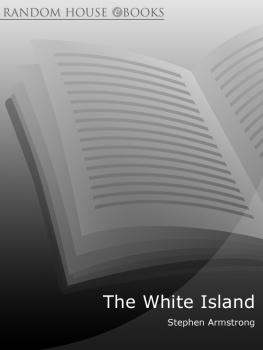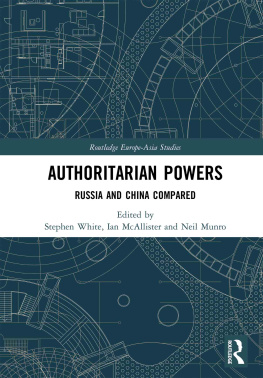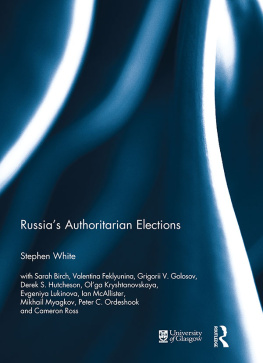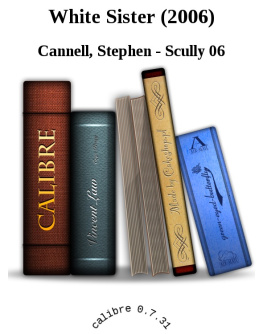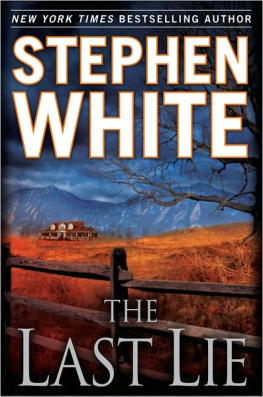Stephen Armstrong - The White Island
Here you can read online Stephen Armstrong - The White Island full text of the book (entire story) in english for free. Download pdf and epub, get meaning, cover and reviews about this ebook. year: 2004, publisher: Bantam Press, genre: Detective and thriller. Description of the work, (preface) as well as reviews are available. Best literature library LitArk.com created for fans of good reading and offers a wide selection of genres:
Romance novel
Science fiction
Adventure
Detective
Science
History
Home and family
Prose
Art
Politics
Computer
Non-fiction
Religion
Business
Children
Humor
Choose a favorite category and find really read worthwhile books. Enjoy immersion in the world of imagination, feel the emotions of the characters or learn something new for yourself, make an fascinating discovery.
- Book:The White Island
- Author:
- Publisher:Bantam Press
- Genre:
- Year:2004
- Rating:5 / 5
- Favourites:Add to favourites
- Your mark:
- 100
- 1
- 2
- 3
- 4
- 5
The White Island: summary, description and annotation
We offer to read an annotation, description, summary or preface (depends on what the author of the book "The White Island" wrote himself). If you haven't found the necessary information about the book — write in the comments, we will try to find it.
The White Island — read online for free the complete book (whole text) full work
Below is the text of the book, divided by pages. System saving the place of the last page read, allows you to conveniently read the book "The White Island" online for free, without having to search again every time where you left off. Put a bookmark, and you can go to the page where you finished reading at any time.
Font size:
Interval:
Bookmark:
The White Island is, and always has been, a magnet for hedonists. Its history reads like a history of pleasure itself. It is also a story of invasions and migrations, of artists and conmen, of drop-outs and love-ins.
The Carthaginians established a cult to their goddess of sex there, and named the island after Bez, their god of dance. Roman centurions in need of a bit of down time between campaigns would go to Ibiza to get their kicks. And over the centuries, cultures around the Med have used the island either as a playground or a dump for the kind of people who didnt quite fit in back home, but who youd probably quite like to meet at a party
This is the history of Ibiza, the fantasy island, framed by one long, golden summer where anything can happen - and it usually does.
TWO THOUSAND YEARS OF PLEASURE IN IBIZA
STEPHEN ARMSTRONG
For Georgia
Most authors start their lists of acknowledgements with thanks to agents and editors. I didnt understand why until I wrote this book. Entirely correctly, therefore, my first thank-yous are to the utterly brilliant Cat Ledger and Doug Young.
I would also like to thank all the people on Ibiza who gave up their time without thought of reward Sue Bennison, Benjami Costa Ribas, Juan Lluis Ferrer, Marina Nixon, Sally Wilson, Pere Palau Torres, Juan Mari Serra, Rafael Costa Bonet, Danny Speigel, Jorge Alonso, Daniel Villedieu, Andy, Mike, Dawn and Claire at Manumission, Sandy Pratt, Colin Casbolt, Cushan Thomas, Danny Whittle, James Cooper, Tony Pike, Richard Lawson and especially Martin Davies and Emily Kaufman, whose books Eivissa-Ibiza: A Hundred Years of Light and Shade and A History Buffs Guide to Ibiza ought to be required reading for anyone interested in the White Island. Julie Savill at the Cowcross Street branch of Flight Centre got me there and back for a remarkably small sum.
Elsewhere, Gloria Mound, Director of the Institute for Marrano-Anusim Studies in Israel, supplied reams of information on Ibizas Jewish population. In the UK, Jonathan Tubbs at the British Museum, Dr Michael Brett at the School of Oriental and African Studies, Dr Ulrich Lehmann at the Victoria and Albert Museum, Peter Lyth at the Christel DeHaan Tourism and Travel Research Institute at Nottingham University Business School and Chris Hewlett at 5th Element all provided expert assistance. Anything factually inaccurate is my fault but Id prefer it if you complained to them.
Id also like to thank Richard Benson, Helen Hawkins, Alkarim Jivani, Richard Cook, John Ville, Tyler Brl, Britta Jaschinski, James Herring and Edward Waller.
My greatest debt, however, is owed to Georgia for reading every word of every edit, making all the right suggestions and generally supporting me while she had more than enough on her own plate. Thank you is not enough.
It all started when the flames hit the water and floated out into the harbour, as if a dragon were breathing across the sea. I sat with James on the rickety chairs of a steak n eggs and full English breakfast all-night caf in Ibiza which was still packed with rollicking families at three in the morning. James was involved in composing a lager-fuelled haiku about the flames and his own family I love these fireworks and I love my wife and, filled with the pleasure of the weekend, I had to agree. By any standards, these fireworks were pretty special.
They lit up the towering walls of the immense eighteenth-century fortress that looms over the harbour with an almost magical light. In the flash and bang of the display, you could imagine the castle was under sustained attack from a disorganized wizard whose conjured pyrotechnics bounced around the artificial bay in an absent-minded way while he leafed through his spell book to find the killer incantation.
And there must have been some sort of sorcery involved in this display. It was doing things that fireworks just didnt do. It was even doing things the laws of physics shouldnt allow. Fire fountained down the harbour wall onto the Mediterranean, but it wasnt extinguished. Instead floating flames spread out across the water like a fleet of tiny Chinese junks. And that was just for starters.
Glowing embers flew into the air and danced in patterns around the night sky, as if a minor god were writing his name with multi-coloured sparklers. Devices that seemed to be Catherine wheels suddenly jumped up and flew off towards the castle walls. Tiny sparks blossomed into opulent flowers in the sky. Dancing, magical lights tripped across the harbour. Whoever was behind this display must have been some sort of practitioner in the dark arts, having swapped his immortal soul for control over the Devils own elements. He was Gandalf, Willy Wonka and Faust all rolled into one, performing in front of us to the limits of his considerable ability for some nefarious purpose impossible to fathom.
Looking around me at the crowds gathered on the waterfront to ooh and aah at the incandescence, I noticed a strange air of calm Spanish contentment spread across the assembled Anglo-Saxon throng. Being British, they were still cuffing their kids, belching and calling one another names, but there was a note of warm affection in the expletives that flew between strangers. It seemed to me that they were only one insult away from falling on one anothers necks and weeping with joy. Although they might want to get their sunburn seen to first.
It made me think how happy the British would be if only wed been able to shift our rock a few hundred miles south. Perhaps it wasnt too late? With a big saw and some oars? We could ask the Scots to build some sort of giant engine. I mean, theyve always been a bit useful in the engineering department. Then we could park up next to Ibizas tiny coastline and melt into the Balearic vortex of charm. And I dont mean charm as in nice smile and quite generous at getting the drinks in, I mean the arcane definition of faerie charm to bewitch and fascinate as if by supernatural powers.
Take the old town, for instance, which was putting in such sterling service as a backdrop to the maelstrom of airborne explosions. To the ceaseless tide of tourists ebbing and flowing around the Marina it was only an elaborate stage set for the real show of whiz-bangs and sparkles. If they gave it a thought, they probably found it slightly confusing that the town was also called Ibiza, sharing its name with the island and leading to slightly panicky moments when first gazing on a road sign IBIZA 10KM. But I thought we were already on Ibiza! (Expats solve the problem by referring to Ibiza Town.)
These careless tourists are missing something. Deep in the foundations of Ibizas towering cathedral dedicated, in a curious piece of Ibicenco logic, to Santa Mara de las Neus, or Mary of the Snows, the patron saint of an island with over three hundred days of unbroken sunshine a year a dark history lurks. The cathedral was imposed on the ruins of Ibizas largest mosque by victorious Catalan Christians after they had forced through the citadels supposedly impenetrable walls. Beneath the fragments of the mosque that remain lies the dust of a Roman temple to Mercury, the messenger of the gods. And beneath that ancient site lies a Carthaginian temple of unknown provenance that belonged to one of the gods beloved of the islands favourite Carthaginian deity, Tanit.
Tanit was the Carthaginian goddess of sexuality, a voluptuous and sensual creature often portrayed sitting cross-legged as if meditating, lightly draped in folded, diaphanous garments that did little to cover her full, womanly figure. She was the first patron goddess of the island and an altogether more earthy protector than Mary of the Snows. The warmth of her tactile reputation, which encouraged a physical ritual of worship more recently imitated in the kind of orgiastic suburban parties that used to excite tabloid readers in the 1970s, was balanced by her other role as the goddess of death.
Font size:
Interval:
Bookmark:
Similar books «The White Island»
Look at similar books to The White Island. We have selected literature similar in name and meaning in the hope of providing readers with more options to find new, interesting, not yet read works.
Discussion, reviews of the book The White Island and just readers' own opinions. Leave your comments, write what you think about the work, its meaning or the main characters. Specify what exactly you liked and what you didn't like, and why you think so.

